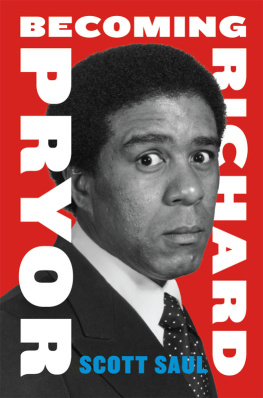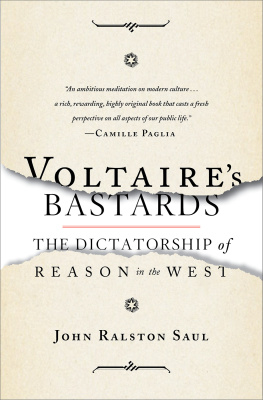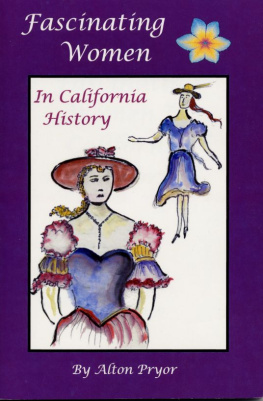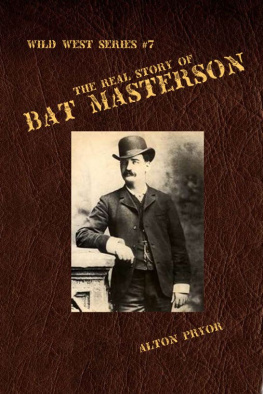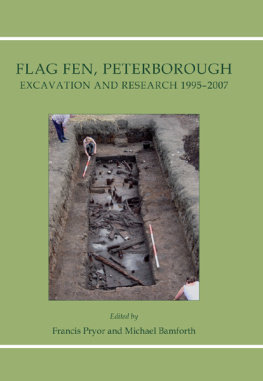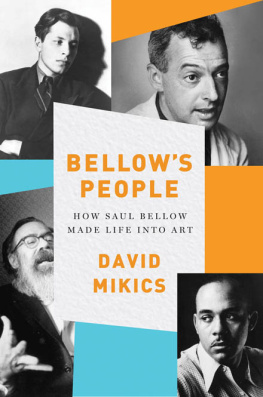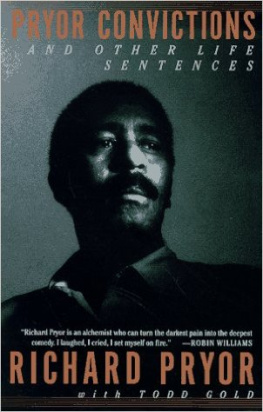Saul - Becoming richard pryor
Here you can read online Saul - Becoming richard pryor full text of the book (entire story) in english for free. Download pdf and epub, get meaning, cover and reviews about this ebook. City: S.l, year: 2016, publisher: HarperCollins, genre: Non-fiction. Description of the work, (preface) as well as reviews are available. Best literature library LitArk.com created for fans of good reading and offers a wide selection of genres:
Romance novel
Science fiction
Adventure
Detective
Science
History
Home and family
Prose
Art
Politics
Computer
Non-fiction
Religion
Business
Children
Humor
Choose a favorite category and find really read worthwhile books. Enjoy immersion in the world of imagination, feel the emotions of the characters or learn something new for yourself, make an fascinating discovery.
- Book:Becoming richard pryor
- Author:
- Publisher:HarperCollins
- Genre:
- Year:2016
- City:S.l
- Rating:4 / 5
- Favourites:Add to favourites
- Your mark:
- 80
- 1
- 2
- 3
- 4
- 5
Becoming richard pryor: summary, description and annotation
We offer to read an annotation, description, summary or preface (depends on what the author of the book "Becoming richard pryor" wrote himself). If you haven't found the necessary information about the book — write in the comments, we will try to find it.
Becoming richard pryor — read online for free the complete book (whole text) full work
Below is the text of the book, divided by pages. System saving the place of the last page read, allows you to conveniently read the book "Becoming richard pryor" online for free, without having to search again every time where you left off. Put a bookmark, and you can go to the page where you finished reading at any time.
Font size:
Interval:
Bookmark:
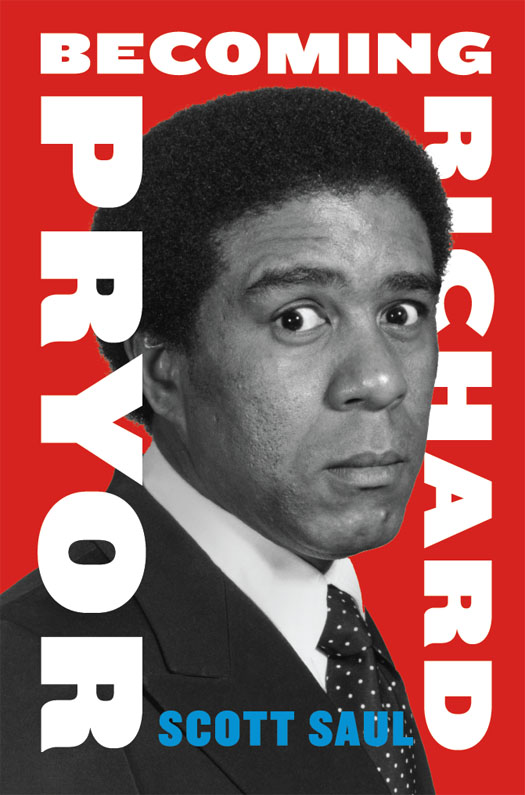
TO MAX
A trickster does not live near the hearth; he does not live in the halls of justice, the soldiers tent, the shamans hut, the monastery. He passes through each of these when there is a moment of silence, and he enlivens each with mischief, but he is not their guiding spirit. He is the spirit of the doorway leading out, and of the crossroad at the edge of town (the one where a little market springs up).
Lewis Hyde, TRICKSTER MAKES THIS WORLD
The world around us is crumbling to make way for new life.
Richard Pryor, in a 1977 interview
M y grandmother is the lady who used to discipline me, says a slender man in his late thirties, wearing a collarless red satin shirt, black slacks, and gold shoes. You know, beat my ass, he finishes with a chuckle. His face flickers between the confident look of a storyteller in control of his audience and the haunted look of a child who recalls how he was beaten more than why. Before him, at Long Beachs Terrace Theater, sits a crowd of three thousand. Theyre watching what will become, after the film is released, the most celebrated stand-up comedy performance of all time: Richard Pryor: Live in Concert.
Anyone here remember those switches? the comedian asks his audience. You used to have to go get the tree yourself and take them leaves like that? A roar of yeah! comes back at him. He demonstrates by reaching upward and groping to strip off a branch, suddenly a little boy agonizing over the task before him. For the rest of the sketch hell flip effortlessly, with a jazzy rhythm, between boy and man.
I see them trees today, he says, I will kill one of them motherfuckers. I will stop the carsay, Wait, hold it. He strides over to the microphone stand and starts throttling it with a rage thats absurdarbicidal. You aint never gonna grow up. You wont be beating nobodys ass.
Then he pauses, returning to the perversity of his past and finding some belated pleasure in it: Thats some hell of psychologyto make you go get a switch to beat your own ass with, right? My grandmother said, Boy, go get me somethin to beat your ass with. And that would be the longest walk in the world.
He pivots so the crowd can see him in profile, a boy inching forward with a frozen look of fear on his face. You be thinking all kind of shit cause you know you done fucked up, Jack, he says. The boy turns his eyes upward as if in prayer, and whimpers, Maybe itll snow before I get there. Maybe shell have a heart attack and wont be able to whup me. I dont want to get no whuppin cause its going to tear it up.
You get them switches and they start cutting the wind on the way home. Make you start crying before you get in the house, the comic says.
Shwoo-shwoo.
Ma-ma! The boys whimper has opened into a full-on wail.
Shwoo-shwoo.
Ma-ma! I dont want.... Mama, please! Mama, please! The boy starts darting from one place to another, cowering while dodging blows that seem to rain over his entire body. Mamapleasemamapleasemamaplease! he howls, his voice the same pitch as a babys scream.
At this point the routine takes the less expected tack. It would be easy for the comic, looking back at the beatings that framed his childhood, to paint his grandmother as the villain of this tale. He does not. When he plays her, his voice assumes a honeyed drawl, a more confident register, as if he were relishing her strength.
Get your ass out of bed! his grandmother hollers when the boy tries to escape her wrath by putting himself to bed early. Put your hand down! Dont you run from me! Dont you run from me! Then, giving one downward clout to her grandsons body with every syllable: Long... as... you... black, dont... you... run... from... me! The crowd roars at this last lineat the wallop of it, the double truth about the boys life it relays. Try as he might, theres no outrunning the twin forces of his fate, the squeeze of his race and the squeeze of his grandmothers discipline.
The next morning, the boy faces the woman who struck him, and is given a lesson in the peculiarity of love. Morning, Mama, he says softly, his mouth fixed in a grimace from the welt that has taken over his face. Come here, baby, she says, then looks at his bruises tenderly, fixing them up. You see, you shouldnt do that, goddamn it. I told you not tojust sit still now. Shes still administering to the bruises when Richard Pryor delivers the last line of the sketch in her voice: And next time you do it, Im going to tear your ass up again.
The comedian laughs, waits for the applause to die down, moves on. The instabilities of his childhoodthe confusions of love and violencehave shaped him into the kind of person who is never at home with peace. A tangle of competing impulses, he cycles not just through moods but through whole personalities, of which the ingenuous child and the avenging adult figure among the most prominent. Offstage, these personalities flow through him with a volatility that makes him hard to handle, if not bewildering. One of his many wives, a few months into her short-lived marriage to him, says that getting to know him is like getting to know 25 or 30 different people. Onstage, he is mesmerizing. You feel, in the audience, that youre plugged into the socket of lifethat youre seeing not a single man onstage but rather an entire world in roiling motion, animated through a taut experiment in creative chaos and artistic control.
For the comedian, though, the stakes are more personal. The stage is the place where he can set his contradictions in motion and play the full array of his many selves. If hes having a good nightif the comedy gods smile upon him, if he finds his formRichard Pryor can own all these personalities as much as they own him.
Decatur, 18991931
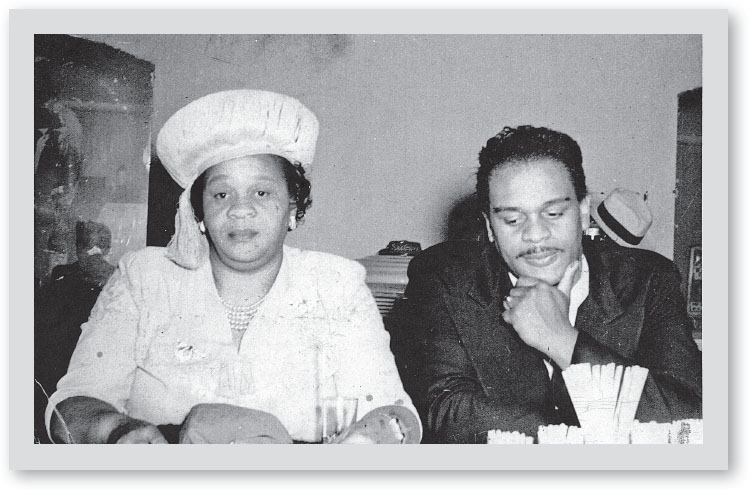
The matriarch on the town: Maria Carter Bryant, Richard Pryors grandmother, in a Peoria tavern with her son Dickie, circa 1945.
(Courtesy of Barbara McGee)
O n the morning of October 19, 1929, a twenty-nine-year-old black woman named Marie Carter Bryant walked into a confectionary in Decatur, Illinois, with trouble on her mind. Shed just heard that a young black boy, probably one of her sons, had been slapped in the confectionary, only a few blocks from her home, and she brought with her a sort of cudgel for the purpose of evening the score. When she found Helen Pappas, one half of the Greek American couple who ran the store, behind the counter, Marie unloaded her fury: a battery of blows to Pappass head that opened up a flesh wound. Pappas ran out of the store in a panic. Marie held her ground.
It was unusual, to say the least, for a black woman to assault a white shopkeeper in 1920s Decatur. The citys black citizens were expected to stay in their placein a small area south of downtown, and on the lower rungs of the local economyand they were expected to be quiet about it. When Marie unsettled those expectations with her cudgel, the Decatur police responded as if a bank had been robbed. Five policemen were summoned to rush the confectionary and subdue her. They found her inside, biding her time before their arrival, and arrested her on a charge of assault.
Marie Bryant was Richard Pryors grandmother, the woman who raised him and took up residence in his psyche ever afterward, imprinting upon him her pride, cunning, and raw, bottom-dog outlook on the world. Born to a poor family that lived outside respectability, abused by her husband as a teenager, Marie had transformed herself by 1929 into a force of nature: a woman who protected herself with her own big hands and took no guff from anyone, whether they were lovers, husbands, shop owners, or policemen. A bootlegger in Decatur, she became a still more daunting presence when she moved eighty miles to Peoria, Illinois, where, as a madam in that citys thriving red-light district, she kept order in her establishments by threatening to pull out a straight razor she reportedly stashed in her bra.
Font size:
Interval:
Bookmark:
Similar books «Becoming richard pryor»
Look at similar books to Becoming richard pryor. We have selected literature similar in name and meaning in the hope of providing readers with more options to find new, interesting, not yet read works.
Discussion, reviews of the book Becoming richard pryor and just readers' own opinions. Leave your comments, write what you think about the work, its meaning or the main characters. Specify what exactly you liked and what you didn't like, and why you think so.

